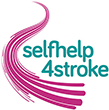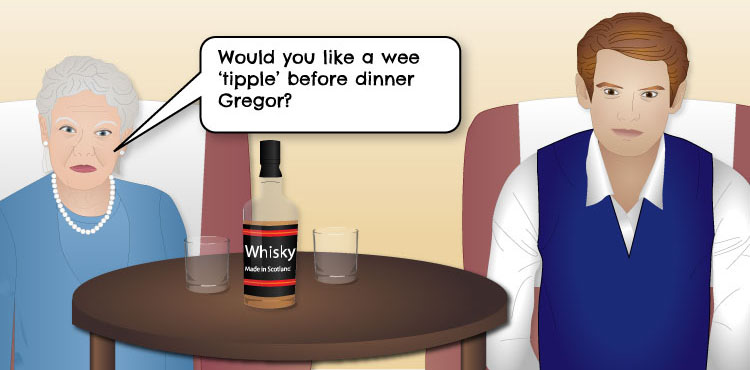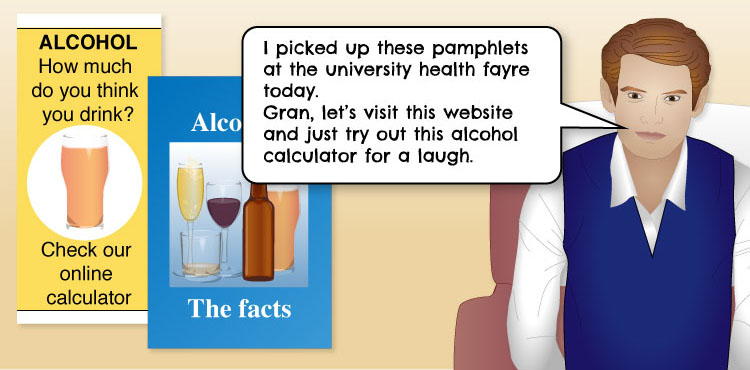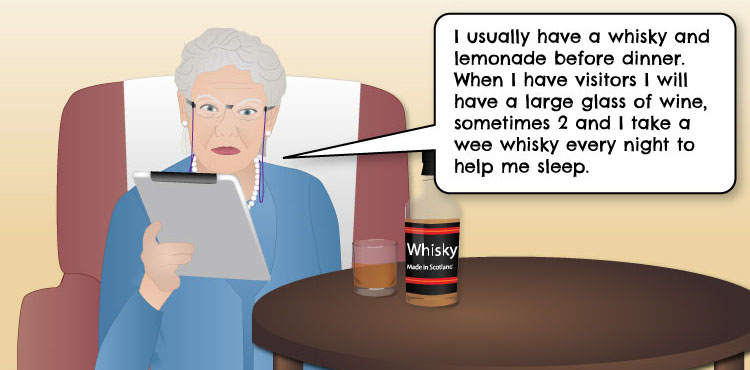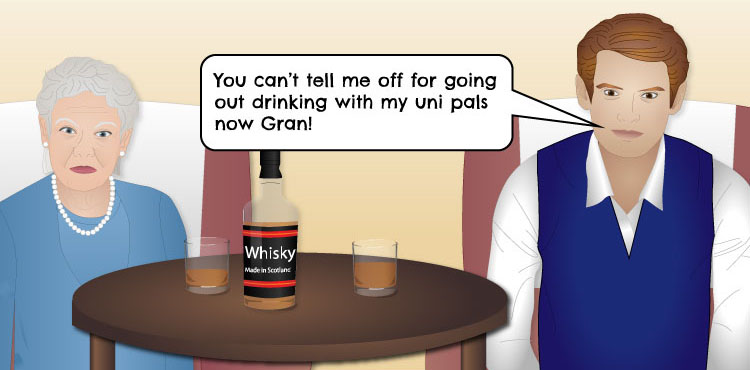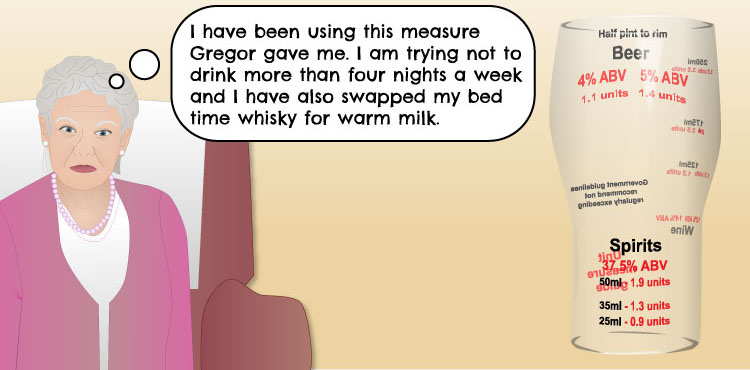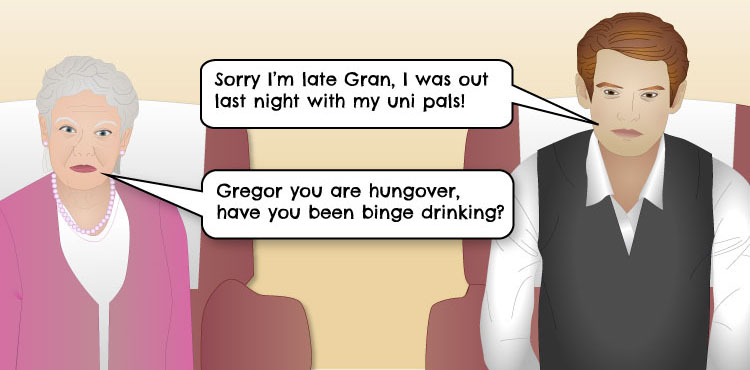Meet Catriona and her grandson Gregor. Catriona is someone who classes herself as a social drinker, a glass of whisky before dinner every night, large glasses of wine with friends, and a whisky before she goes to bed.
View text alternative
Catriona is about to pour out a couple of glasses of whisky for herself and her grandson.
Catriona: “Would you like a wee ‘tipple’ before dinner Gregor?”
Key point: People are often drinking more units of alcohol than they realise. Especially if they are pouring their own drinks at home. You could use the alcohol calculator to check your daily/ weekly units.
Scene 2:
Gregor shows Catriona some pamphlets.
Gregor: “I picked up these pamphlets at the university health fayre today. Gran, let’s visit this website and try out the alcohol calculator for a laugh.”
Key point: If you want to enjoy a drink it is best to stick to the government’s lower risk guidelines. Regularly drinking more than this can put you at risk of heart disease, stroke, diabetes, cancer and mental health problems.
Scene 3:
Catriona talks out loud as she does the calculator online on her tablet.
Catriona: “I usually have a whisky and lemonade before dinner. When I have visitors I will have a large glass of wine, sometimes 2 and I take a wee whisky every night to help me sleep.”
Key point: Catriona is having 3 – 4 units each night, more when she has visitors. This puts her at borderline, or just over, sensible drinking levels.
Scene 4:
Gregor laughs.
Gregor: “You can’t tell me off for going out drinking with my uni pals now Gran!”
Key point: It may be easier than you think to drink above the Scottish Government’s lower risk levels. People sometimes take an alcoholic drink to help them sleep.
Scene 5:
Alcohol unit measure cup
Catriona thinks: “I have been using this measure Gregor gave me. I have been trying not to drink more than four nights a week and I have also swapped my bed time whisky for warm milk.”
Key point: People can binge drink without realising. For example, those shots of whisky after each end of bowls every weekend. You might want to think about your patterns of drinking and well as the amount you drink.
Scene 6:
Gregor has arrived for Sunday lunch looking hungover.
Gregor: “Sorry I’m late Gran, I was out last night with my Uni pals.”
Catriona: “Gregor are you hungover, have you been binge drinking?”
Key point: There is nothing wrong with having the occasional drink, but try to have a few days alcohol free per week.
Drinking too much alcohol raises blood pressure. Binge drinking (drinking more than 6 units in 6 hours) is particularly dangerous as it can cause your blood pressure to soar. Try to limit your alcohol to within the current guidelines.
Something to think about
Think about how you react to things you find stressful. Do you do something to calm yourself down or make yourself feel better such as having an alcoholic drink? It might help to explore the stress relief topic.
More information
Websites:
- drinkaware.co.uk
- Al-Anon – For families and friends of alcoholics
- Glasgow Council on Alcohol
- NHS choices
- Alcohol Change
Chest Heart & Stroke Scotland factsheets:
Research papers:
- Stroke survivors’ and family members’ perspectives of multimodal lifestyle interventions for secondary prevention of stroke and transient ischemic attack: a qualitative review and meta-aggregation [.pdf, 269 KB] Lawrence M, Pringle J, Kerr S, Booth J. (2015) Stroke survivors’ and family members’ perspectives of multimodal lifestyle interventions for secondary prevention of stroke and transient ischaemic attack: a qualitative review and meta-aggregation. Disability & Rehabilitation, early online: 1-11 doi:10.3109/09638288.2015.1031831
- An exploration of lifestyle beliefs and lifestyle behaviour following stroke: findings from a focus group study of patients and family members [.pdf, 293 KB] Lawrence M, Kerr S, Watson H, Paton G, Ellis G. (2011) An exploration of lifestyle beliefs and lifestyle behaviour following stroke: findings from a focus group study of patients and family members. BMC Family Practice, 11:97



